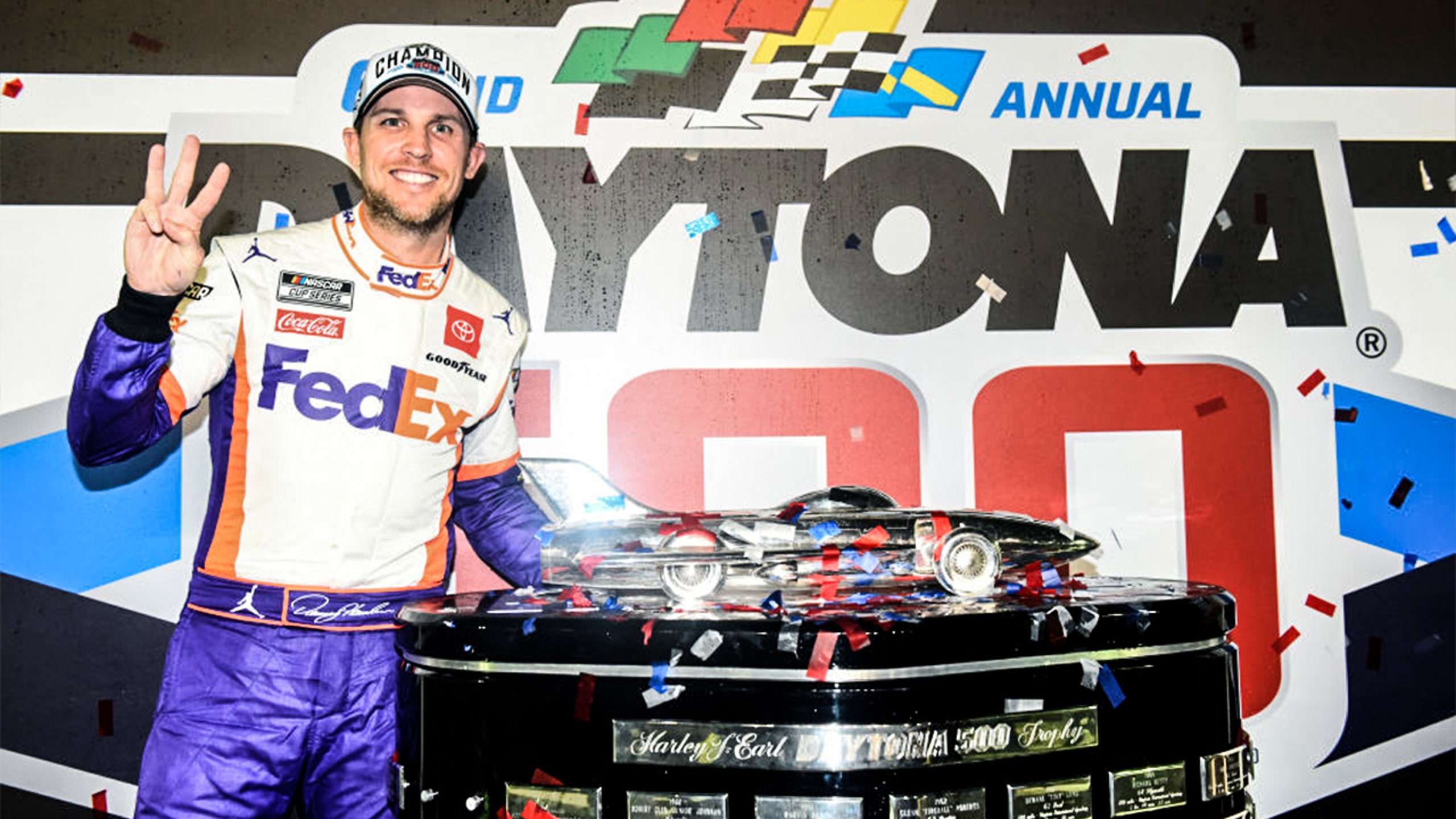Who Is Predicted To Win Daytona 500
So you want to know how to win every argument?
Denny Hamlin enters the race as the 2019 Daytona 500 winner. Hamlin (+900) is currently the co-favorite to win this year’s edition. The last driver to win this race in consecutive years was.
- In the Daytona 500 on Feb. 14, Michael McDowell cashed tickets at a 100/1 price (Bet $100 to win $10,000). One week later on the road course from Daytona, we watched Christopher Bell and the #20 car cash tickets at odds as high as 55/1.
- The 2011 NASCAR season is here and Knoxville NASCAR driver Trevor Bayne makes his first Daytona 500 start in a week. The young driver, who is only 19, is beginning to get a lot of buzz as an up.
Stop trying.
Not that passivity is the most effective strategy but if you’re thinking about “winning” you’re already headed down the wrong path.
From a neuroscience perspective, “When an argument starts, persuasion stops.”
Via Compelling People: The Hidden Qualities That Make Us Influential:
When an argument starts, persuasion stops. A group of researchers including psychologist Drew Westen conducted a revealing experiment, which Westen wrote about in his book The Political Brain. In the heated election campaign of 2004, the researchers found supporters of presidential candidates George Bush and John Kerry and took MRI pictures of their brains as they watched video footage of their favorite candidate completely contradicting himself. So what happened in people’s brains when they saw information that contradicted their worldview in a charged political environment? As soon as they recognized the video clips as being in conflict with their worldview, the parts of the brain that handle reason and logic went dormant. And the parts of the brain that handle hostile attacks — the fight-or-flight response — lit up.
Get The Brief. Sign up to receive the top stories you need to know right now.
Thank you!
For your security, we've sent a confirmation email to the address you entered. Click the link to confirm your subscription and begin receiving our newsletters. If you don't get the confirmation within 10 minutes, please check your spam folder.This is what happens when a discussion becomes an argument. It’s no longer an exercise in logic and reasoning. It’s just a fight. And being in a fight brings its own frame of mind, a whole set of attitudes, expectations, and conditioned reactions that go along with arguing. As soon as that happens, no one cares who is right and who is wrong. All that matters is who is friend and who is foe. So if you’re trying to win over someone whose natural allegiances are not with you, getting into an argument is a sure way to fail.
We’ve all been there: doing anything to win, it’s messy, no progress is made or (god forbid) acknowledged. The only thing guaranteed is hurt feelings.
What’s the real problem? Winning means seeing the discussion through a war metaphor.
Daniel Cohen explains how the whole war metaphor is inherently problematic in his TED talk:

Once it’s war, we’re no longer focused on what’s right, we just want to win by any means necessary. No, not just the other guy — you’re doing it too.
Nobody wants to admit they’re wrong because it’s now a status game – and that’s where “winning” comes from, it’s a metaphoric struggle for life and death now and nobody wants to die.
Most people can’t even take feedback well. Why? Same reason.
Taking feedback becomes a status game. If they take your advice, you’re telling them what to do.
Via Your Brain at Work: Strategies for Overcoming Distraction, Regaining Focus, and Working Smarter All Day Long:
Who Is Predicted To Win Daytona 500 Winning
The source of the difficulty here lies in who comes up with the solution. Paul’s suggestion makes him look smarter, and Eric less smart. This impacts their relative status, which Eric is likely to fight against. The better Paul’s answer is, the more likely Eric might resist it. It’s bizarre… Paul’s giving out suggestions also threatens Eric’s autonomy: it’s no longer Eric’s choice to follow a specific path.
But you still want to know how to win every argument?
Okay, so what happens if you bring video evidence, expert witnesses and logically back them into a corner from which the greatest trial lawyer could not escape?
They hate you. That’s what happens.
Congrats, you’re the lucky winner of a new enemy.
There’s a better way.
Ask yourself “What’s my real goal?”
It usually breaks down into one of three categories:
Who Is Predicted To Win Daytona 500 Winner
1) “I want to influence them to do things my way.”
Well, then having them hate you doesn’t help.
You can get people to do things your way or accept new ideas. There’s not necessarily a status game/ego threat there — unless you demand credit for the idea.
So the first step is stop arguing and stop trying to “win.” Most business arguments fall into this category.
2) “I don’t know why I’m arguing but somehow I ended up here.”
We’ve all been there. But trying to “win” is not the solution here either. You don’t even really want to be fighting. Most relationship arguments fall into this category.
Married couples never resolve most of the things they fight about. John Gottman’s research shows 69% of couple’s problems are perpetual.
Leaving those arguments unfought does not end the relationship. Vicious must-win tactics do. So stop arguing.
3) “I want to prove them wrong.”
And here’s where you really get into trouble.
You’re saying you’ll only be satisfied by an admission of error and that runs headlong into the brain shutdown and status game issues. Good luck in your personal war against biology and human nature.
You can’t make someone admit defeat, but you can make them hate you. And is that your goal? With a clear head, re-evaluate what you really want here.
The only category that makes any sense is #1. But arguing isn’t the way. Persuasion is. How do you do that? I’ve described a number of methods:
- Here’s how FBI hostage negotiators do it.
- Here’s how persuasion guru Robert Cialdini does it.
- Here’s what “How to Win Friends and Influence People” author Dale Carnegie says.
- Here’s how to give feedback or give a friend advice while dodging the status game issue.
One Final Note
In that TED talk above, Daniel Cohen makes another excellent point that often gets overlooked:
Losing an argument means you learn something.
Knowing how to win every argument would be a terrible personal loss.

You don’t get any wiser by verbally bludgeoning people. You get wiser by learning.
Winning an argument is a short term ego victory. Losing an argument can be a learning experience that benefits you the rest of your life.
Who Is Predicted To Win The Daytona 500 2021
Or maybe I’m wrong. Please prove me wrong.
I’d rather learn something.
Join 45K+ readers. Get a free weekly update via email here.
Related posts:
This piece originally appeared on Barking Up the Wrong Tree.
 EDIT POST
EDIT POST